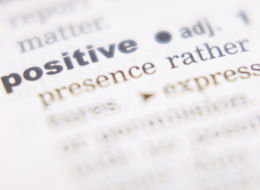
Today I have the pleasure of interviewing the coauthor of “Hope in the Age of Anxiety.” I excerpted his “9 Kinds of Hopelessness and How You Can Overcome Them” awhile back, and now I wanted to focus on what you can do to find and sustain hope. Dr. Scioli is professor of Clinical Psychology at Keene State College and a member of the graduate faculty at the University of Rhode Island.
Question: What is the biggest thread to hope?
Anthony: If I had to pick one resource it would be surrounding oneself with good “hope providers”. I view hope in terms of four dimensions: mastery or goal strivings, attachments, survival or coping skills, and spirituality.
Good relationships can serve as catalyst for the development of all four of these resources. We need a powerful presence in our lives for empowerment, especially when we are children, but also whenever we confront new and arduous tasks. We need people in our lives that we can trust, and in whom we can confide. We need to feel that they will not abandon us and will supply a continued presence. We need reassurance in times of crisis, a helpful hand, a shoulder to cry on, a good listener who, like the Buddha, can maintain a calm head and a warm heart.
Hope is about options, and the best hope providers offer “liberating relationships”. We need faith and a spiritual foundation to experience a full hope. Exposure to caring and trustworthy family and friends create a more open attitude for developing faith in others as well as the universe.
Question: Name the five most important things that will help a person find and sustain hope.
Anthony: My answer to this question overlaps a bit with my response to the previous one. But first, I would think more in terms of building hope, rather than trying to find it. Create a blueprint for yourself by taking out a piece of paper and number it one through five, leaving enough space between the items to fill in more details, suggestions, ideas, etc.
Next to the numbers one through four write in these headings, relationships (1), goals (2), coping (3), and spirituality (4). Next to number 5 write down what you believe is your most important mission in life (e.g., a good parent, the best teacher you can be, a crusader for justice, a friend of the poor).
Now you need to fill in the details.
1. Next to goals, write down your three most important life goals. Now list three or four inspiring role models, and helpers who will provide empowerment experiences for you.
2. For relationships, list two to three individuals who will build, and not erode your sense of trust. Seek out those whom you can be open with, and avoid individuals who make you feel guarded or defensive. Make a commitment to call or meet one of these individuals at least once a week.
3. Next to coping, list two or three stress management skills you have or would like to possess, and make a commitment to practice them at least several times a week. Hope is also about having options. What is your preferred way of coping? Is it problem solving, seeking support from others, praying, planning in advance, or avoidance? All of these strategies have their place. The goal for you to is to expand your coping repertoire. Make a commitment to practice one or two strategies that are not part of your normal coping repertoire.
4. Next to spirituality, list four to five of your greatest sources of faith. This can be a god or higher power, friends, social institutions, anything that feels spiritual to you. Make a committee to develop a game plan to deepen in your faith and sense of spirituality in these areas of faith.
5. Finally, make a commitment to write out a personal “mission statement”, making it elaborate enough to guide your daily thoughts, feelings and behaviors. Consider placing your mission statement in one or more visible areas or in a readily accessible location where you can refer to it when life becomes hectic, confused, or frustrating.
* Click here to subscribe to Beyond Blue! And click here to follow Therese on Twitter. And click here to join Group Beyond Blue, a depression support group. Now stop clicking.

